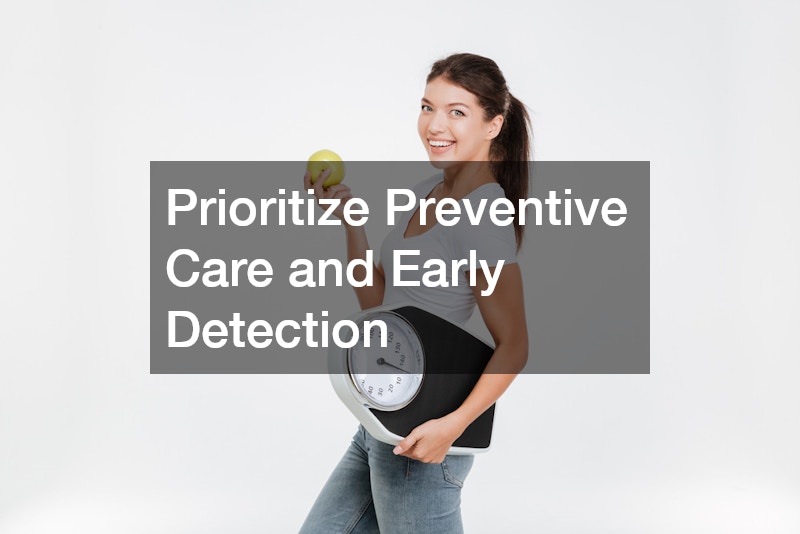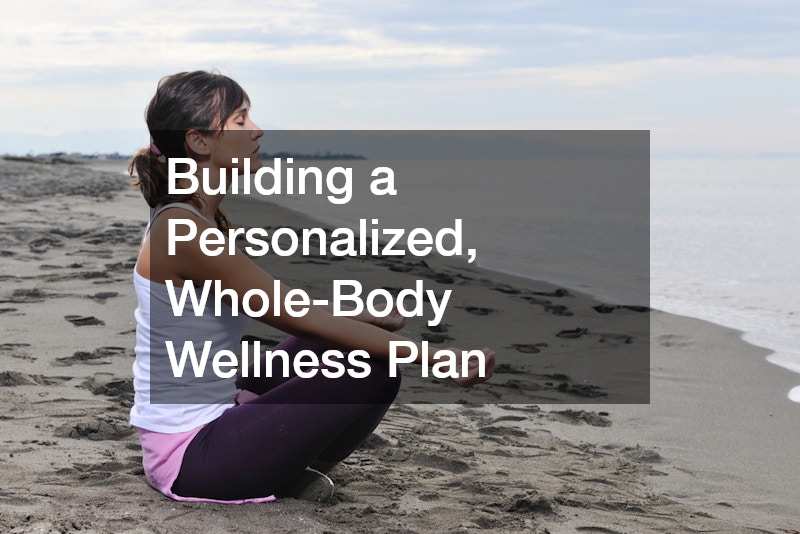Aging gracefully is no longer about accepting limitations—it’s about embracing vitality, independence, and confidence through every stage of life. Advances in medical science, technology, and personalized care have transformed how we understand and support the aging process. People are living longer than ever before, but more importantly, they’re living better.
Healthy aging isn’t achieved by focusing on one area alone. It requires a holistic approach that considers physical health, emotional balance, cognitive function, and social connection. From regular wellness screenings to cutting-edge medical innovations, there are more tools than ever to help people stay active and engaged well into their later years.
This comprehensive guide explores how today’s medical breakthroughs, lifestyle strategies, and preventive practices work together to keep the body and mind strong. Whether you’re planning for your own health journey or helping an older loved one thrive, these insights will help you make informed, proactive decisions for long-term wellness.
Prioritize Preventive Care and Early Detection
Routine preventive care is one of the most powerful tools for preserving health and longevity. Consistent monitoring through physical exams provides doctors with vital data about heart function, blood pressure, cholesterol levels, and early warning signs of chronic conditions. These assessments give individuals a chance to take action before minor concerns become major health challenges.
Preventive medicine also goes beyond the general checkup. Oral health, for instance, is often an overlooked piece of the wellness puzzle. Regular visits to general dentistry providers not only maintain a bright smile but also serve as early indicators of broader health concerns. Research has linked gum disease to cardiovascular conditions, diabetes, and even cognitive decline.
Actionable steps for maintaining preventive wellness include:
- Scheduling annual physical exams and bloodwork to track key health markers.
- Visiting a dental professional twice a year for cleaning and oral screening.
- Maintaining an updated record of medications, supplements, and health changes.
- Asking your doctor about age-specific tests, such as bone density scans or cancer screenings.
By treating preventive care as a priority rather than an afterthought, aging adults can detect potential issues early, leading to faster recovery and improved quality of life.
React Quickly to Health Changes with Accessible Medical Support
No matter how careful we are, health issues can arise unexpectedly. The good news is that access to urgent care services has expanded dramatically, providing patients with immediate medical attention without the need for an emergency room visit. These centers are now equipped with on-site imaging, laboratory testing, and wound care—making them a reliable resource for everything from infections to minor fractures.
Equally important are cutting edge innovations that make healthcare faster, more accurate, and more convenient. Telemedicine, for example, allows patients to consult with specialists from home, while wearable health monitors track heart rate, blood oxygen levels, and sleep patterns in real time. Such tools empower individuals to stay informed about their own health and seek medical attention at the first sign of trouble.
Tips for using modern healthcare resources effectively:
- Know the nearest urgent care locations in your area, especially if you or a loved one have mobility issues.
- Use telehealth for follow-up visits or minor symptoms when travel is difficult.
- Keep digital health apps synced with your doctor’s portal to share up-to-date data.
- Treat new symptoms—like sudden fatigue, dizziness, or swelling—as cues to act quickly.
The goal isn’t to fear changes but to respond to them swiftly. Fast access to care can make the difference between a short recovery and a long-term complication.
Protect Heart and Circulatory Health Through Advanced Procedures
As we age, maintaining cardiovascular health becomes even more critical. The circulatory system fuels every organ and tissue, so when it functions well, the entire body benefits. Modern vascular surgery has evolved to provide safer, minimally invasive solutions for issues like blocked arteries, aneurysms, and vein disorders. Techniques such as endovascular repair and laser ablation offer faster healing and shorter hospital stays.
Beyond surgical advancements, the growing field of mobility studies plays an essential role in recovery and prevention. These studies evaluate how movement patterns, muscle strength, and balance contribute to overall circulation and joint health. Insights from mobility testing help physicians tailor physical therapy programs that improve blood flow, reduce inflammation, and enhance endurance.
Ways to maintain optimal vascular health include:
- Incorporating at least 150 minutes of moderate aerobic activity per week.
- Eating a diet rich in leafy greens, omega-3s, and whole grains.
- Avoiding smoking and limiting alcohol consumption.
- Getting screened for peripheral artery disease if you experience leg cramps or numbness.
Modern medicine has made it possible not only to treat heart and vascular problems effectively but also to prevent them through smart, individualized care strategies.
Strengthen Independence and Quality of Life for Seniors
Maintaining independence is a central goal for many older adults. Today’s assisted living facilities are designed with that principle in mind, combining comfortable housing with medical support and social enrichment. These communities now integrate health monitoring systems, therapy programs, and wellness-focused amenities to help residents thrive physically and mentally.
Hearing is another vital element of independence. Regular hearing tests can detect early signs of hearing loss, allowing individuals to receive corrective devices before the condition interferes with social interactions or safety. Research shows that untreated hearing loss can lead to isolation, cognitive decline, and even balance issues.
Key factors to consider when supporting senior independence:
- Choose assisted living facilities that offer on-site medical staff, rehabilitation services, and emergency support.
- Encourage regular hearing tests for anyone noticing muffled speech or difficulty following conversations.
- Promote group fitness classes, hobby clubs, or volunteer opportunities that keep residents active and engaged.
- Integrate technology like fall-detection devices or health-tracking wearables for added safety.
By blending modern living spaces with proactive medical care, seniors can maintain a higher degree of independence, confidence, and overall happiness.
Enhance Confidence and Self-Esteem Through Modern Wellness Services
Health isn’t just physical—it’s also emotional and psychological. As people age, maintaining a positive self-image can directly influence motivation and quality of life. The growing field of esthetics now focuses on enhancing well-being rather than merely appearance. Treatments such as skin rejuvenation, noninvasive cosmetic procedures, and restorative therapies are often designed with mature clients in mind. These services can boost self-esteem, promote relaxation, and even improve skin health and circulation.
At the same time, mobility studies reveal how posture and movement patterns contribute to body image and confidence. Good mobility reduces stiffness, promotes better balance, and encourages an upright, active stance—each contributing to a youthful, energetic presence.
Simple ways to support inner and outer wellness include:
- Engaging in daily stretching or low-impact exercises like yoga or swimming.
- Consulting with qualified esthetics professionals who specialize in age-conscious care.
- Incorporating mindfulness techniques to reduce stress and tension that show in facial expressions and muscle tone.
- Maintaining regular movement to improve flexibility and boost endorphin levels.
When physical health and self-confidence work hand in hand, aging adults are more likely to stay socially active, motivated, and emotionally resilient.
Improve Healthcare Efficiency with Smart Systems and Data
Behind every successful healthcare experience is a network of logistics, technology, and coordination. Hospitals, clinics, and pharmacies now rely on medical inventory tracking systems to ensure critical supplies—from medications to surgical tools—are always available. This behind-the-scenes innovation reduces delays, minimizes waste, and ensures patients receive the right treatment without interruption.
Paired with cutting edge data systems, these tools make healthcare more efficient and reliable. Automated tracking not only helps medical teams manage resources but also provides valuable analytics on patient trends, supply usage, and emergency readiness. This allows healthcare providers to make faster, evidence-based decisions that enhance patient outcomes.
Benefits of technology-driven healthcare management include:
- Improved access to medications and essential supplies, especially during emergencies.
- Reduced medical errors through barcode and RFID tracking.
- Better coordination between departments and facilities, speeding up patient care.
- Cost savings that can be reinvested in patient wellness programs or upgraded medical equipment.
These innovations may not always be visible to patients, but they form the backbone of a safer, more responsive healthcare system that supports healthy aging for all.
Building a Personalized, Whole-Body Wellness Plan
Healthy aging works best when it’s tailored to the individual. A personalized care plan combines medical guidance, lifestyle adjustments, and consistent self-assessment. Core to that plan are regular physical exams and visits to general dentistry professionals—two of the simplest but most impactful ways to stay ahead of health concerns.
A well-rounded wellness plan should balance preventive care, nutrition, movement, mental health, and ongoing medical consultation. Rather than reacting to illness, the goal is to build resilience across all systems of the body.
How to create your own aging-well blueprint:
- Schedule Regular Checkups: Annual physical exams help detect subtle changes in cardiovascular, endocrine, or metabolic function.
- Monitor Oral Health: Dental care prevents infections and inflammation that can spread through the bloodstream.
- Stay Active: Incorporate mobility and strength exercises that protect joints and promote endurance.
- Support Brain Health: Engage in learning, puzzles, or social activities that keep the mind sharp.
- Eat for Longevity: Emphasize whole foods, lean proteins, and antioxidant-rich produce.
- Prioritize Rest: Sleep is critical for cell repair, hormone balance, and immune function.
- Build a Support Network: Surround yourself with positive influences—friends, family, or community groups that promote wellness.
By weaving together medical care, lifestyle habits, and emotional balance, individuals can design a plan that supports not just longevity, but a fulfilling, vibrant life.
The Power of Interdisciplinary Collaboration in Aging Care
One of the most transformative changes in modern healthcare is the emphasis on collaboration between specialties. Physicians, dentists, therapists, and even esthetics professionals now work together to offer coordinated care for aging adults. A person’s medical record can now be securely shared between providers, ensuring that everyone—from cardiologists to physical therapists—has a full understanding of the patient’s history and needs.
This holistic approach is particularly important for seniors managing multiple conditions. For example, a patient recovering from vascular surgery might work with a mobility specialist to restore strength, while their dentist monitors gum health that could affect cardiovascular recovery. Such teamwork prevents conflicting treatments, reduces medication errors, and ensures every aspect of health is considered.
Advantages of collaborative aging care include:
- Improved accuracy in diagnosis and treatment planning.
- Streamlined referrals that save time and reduce stress.
- Enhanced communication between patients and multiple care providers.
- Comprehensive monitoring that promotes early detection of complications.
This synergy between disciplines reflects the future of healthcare—personalized, preventive, and deeply interconnected.
Staying Mentally and Socially Engaged
Cognitive and emotional wellness are just as vital as physical health. Studies consistently show that social interaction, intellectual stimulation, and emotional support are powerful predictors of longevity. Whether through community classes, volunteering, or digital communication platforms, staying connected keeps the brain active and the spirit motivated.
Ways to support brain and emotional health:
- Learn something new: Try music lessons, new languages, or creative writing.
- Stay socially connected: Schedule regular gatherings, video calls, or group activities.
- Manage stress: Practice meditation, journaling, or breathing exercises.
- Get professional support: Seek counseling or group therapy if facing loneliness or depression.
Healthy aging thrives in environments where both the body and mind are nurtured. Emotional resilience enhances recovery, boosts immunity, and contributes to a lasting sense of fulfillment.
The Role of Nutrition and Hydration in Long-Term Vitality
Diet and hydration form the cornerstone of any successful wellness plan, especially as the body’s nutritional needs evolve with age. Nutrient absorption can decline, metabolism slows, and certain deficiencies—such as calcium, vitamin D, and B12—become more common. Supporting proper nutrition helps maintain energy, bone strength, and immune defense.
Guidelines for age-conscious nutrition:
- Prioritize whole foods: Choose vegetables, fruits, lean proteins, legumes, and whole grains for steady energy and digestive health.
- Balance hydration: Aim for consistent water intake throughout the day to improve circulation and skin elasticity.
- Support muscle retention: Include protein at every meal to preserve lean mass and prevent frailty.
- Ask your healthcare provider to test for vitamin D, iron, and B-vitamin levels during regular exams.
For individuals in assisted living or managing chronic conditions, meal planning should be coordinated with medical professionals. Collaboration between dietitians, physicians, and care staff ensures personalized nutrition that supports specific needs—whether it’s post-surgical healing, diabetes control, or vascular health maintenance.
Proper nutrition is not just about extending life—it’s about fueling an active, independent lifestyle for decades to come.
Healthy aging is not about resisting time—it’s about working with it. With today’s medical advancements, technology, and preventive strategies, growing older can mean becoming stronger, wiser, and more self-assured. From innovative surgical procedures to smarter healthcare systems, every breakthrough contributes to a future where vitality is maintained longer than ever before.
By prioritizing proactive care, fostering social connections, and embracing the tools modern medicine provides, individuals can enjoy not just more years of life—but more life in their years. The journey to healthy aging begins with awareness, continues with action, and flourishes with the ongoing pursuit of well-being at every stage.







